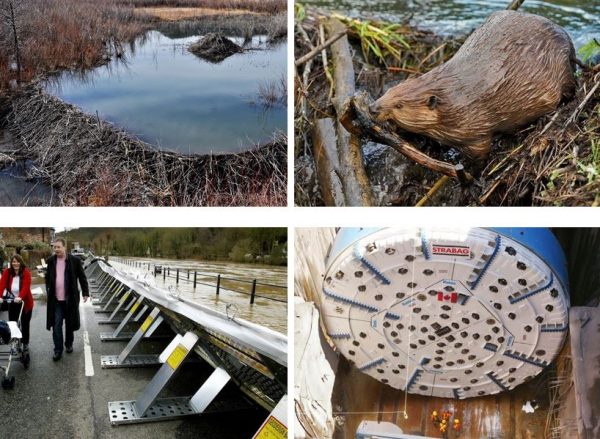As the federal election approaches, the Liberal government’s record has become increasingly difficult to defend. Prime Minister Justin Trudeau’s previous election promise that he would run only “modest” deficits has burgeoned into a national debt increase that is bigger per person than that racked up by any government in Canadian history outside of a major war or recession. Trudeau promised to reduce taxes for “middle-class” families, but a Fraser Institute analysis calculated that more than 80 per cent of middle-class families are paying, on average, $840 more in income taxes per year than in the Stephen Harper era.
Then there’s Indigenous reconciliation. After a bungled inquiry into missing and murdered women left Aboriginal families angry and disappointed, the Trudeau government’s reconciliation agenda was further undermined by its firing of Attorney-General Jody Wilson-Raybould.
Trudeau’s attempts to build trade with China have tanked, damaged by naïve attempts to rope Beijing’s autocratic leadership into joining his “progressive” trade agenda, and that was before a vengeful China unleashed trade and other retaliation for Canada’s arrest of Huawei CFO Meng Wanzhou. Meanwhile, the NAFTA replacement deal, the United States-Mexico-Canada Agreement (USMCA), still isn’t signed and high U.S. tariffs on steel, aluminum and forest products continue to hurt Canadian industry.
So how does a party that can’t campaign on its record go about getting re-elected? By building its campaign around an issue where voters can see its members as heroes fighting to save the environment against uncaring, planet-destroying opponents. That issue is climate change and the Liberals’ main weapon is carbon taxation. Winning re-election with this strategy requires convincing voters there’s a “climate emergency.” And so on April 1, the day the federal carbon tax kicked in on non-cooperating provinces, the federal Department of Environment and Climate Change released a supposedly independent report claiming “Canada is warming twice as fast as rest of the world.”
The clearest answer to the question of what we should do about climate change was offered by a man in hip waders who was filling sandbags to help with the flooding in Central Canada: adapt and mitigate.
From now until the election, Canadians will hear Trudeau and his cabinet members blame every weather event – wet, dry, cold or warm – on climate change and restate the urgent need for a carbon tax to stop it. When the prime minister recently visited flood-ravaged areas in Quebec, he called the floods, “the new reality of climate change.” But virtually all experts attribute the recent flooding to one of the longest, coldest, highest-snowfall winters on record. Wasn’t climate change supposed to be about global warming?

Convincing Canadians of the need for carbon taxation – or “putting a price on pollution” as they often put it – is just the first element of the Liberals’ re-election strategy. Their most powerful and cynical tactic is their promise to give most taxpayers a carbon-tax rebate bigger than what they will supposedly pay in carbon taxes. How is that possible? The answer is that individuals will get the rebates, while businesses bear the full cost. In other words, tax the job creators and entrepreneurs, and use that money to bribe the other voters.
This calculus may be even more cynical than it appears, if it later proves to have depended on the government and friendly news media low-balling their projections of a typical household’s carbon tax burden by, for example, underestimating the costs of heating an average home with natural gas. Millions of people may end up paying far more in carbon tax than they’ve been led to expect, but likely won’t realize it until after the election.
The principal gladiators leading the Liberal carbon-tax forces are Trudeau and his eco-impassioned environment minister, Catherine McKenna. Opposing them in the carbon-tax coliseum are the premiers of Alberta, Saskatchewan, Manitoba, Ontario and New Brunswick, along with federal Conservative leader Andrew Scheer. Scheer will have most of the spears trained on him. McKenna recently accused him of “having no climate plan.” That may be true. But if so, it could be of monumental benefit to Canadians, because it means Scheer still has a chance to get it right. Above all, Scheer’s climate plan needs to recognize the fundamental paradox that Canadians could all move to Mars tomorrow but it would have virtually zero impact on global climate change.

Here’s why. Many Canadians have been led to believe (with the help of Liberal misinformation) that crude oil and natural gas – plus the whole hydrocarbon complex associated with these commodities – is a sunset industry. But authoritative forecasts see anything but terminal decline, with a consensus prediction that growth in developing countries will push world crude oil demand from the current 100 million barrels per day to approximately 110 million barrels per day by 2030. If that’s a sunset, it’s certainly a long, lingering and colourful one.
Trends for natural gas contradict the solar-and-wind crowd’s dreams even more forcefully. Natural gas demand is increasing almost everywhere that populations and economies are growing. According to this widely respected report, the world’s natural gas consumption is forecast to zoom by over 40 percent between 2020 and 2040, to more than 500 billion cubic feet (bcf) per day. The global trade in liquefied natural gas (LNG) alone exceeded 38 bcf per day by 2017. That was nearly three times Canada’s entire daily natural gas production. Rather than fretting over how to force the transition from a “brown” to a “green” economy, we need to start exporting LNG before we miss this generational opportunity.
Here’s the question Canadians should be asking: If world oil and gas demand is going up anyway, why should Canada cede the market for our most important exports to the likes of Russia, Iran, Nigeria and Saudi Arabia — countries that don’t care about the environment and have horrendous human rights records? At the same time, hundreds of coal-fired power plants are under construction in China, India and Southeast Asia. Vietnam, among the smaller countries in that region, has new coal-fired plants under construction that could end up emitting more carbon dioxide than all of Canada.
As good little scout Canada struggles mightily to meet its commitments under the Paris climate accord, most nations have already given up on the pact. Our largest trading partner, the United States, pulled out of the Paris deal altogether, further endangering Canada’s competitiveness. Last year, global greenhouse gas emissions grew by an estimated 2.7 per cent. Canada emits 1.6 percent of the worldwide total. So if Canada’s economy had simply ceased to exist, our emissions would have been replaced in just seven months.

These are facts. So the Trudeau Liberals’ decision to base their election campaign on the assertion that reducing our country’s relatively tiny emissions will help fight climate change can only be explained in one of two ways. First, Trudeau and his team are breathtakingly unaware of facts anyone can learn through an afternoon of googling. Second, they choose to mislead Canadians in a desperate bid for re-election. That would mean they choose to base their election campaign on a known lie.
What should Canada actually do about climate change? The clearest answer was recently offered by a man in hip waders who was filling sandbags to help with the flooding in Central Canada. When asked by a reporter what should be done to prevent the floods, he replied, “Well, there’s all this talk about climate change, but I don’t see what Canada can do about that when China and other countries keep burning more. If that’s going to cause more floods, we’d better figure out how we can be ready for them.”
That’s the most common-sense analysis I’ve heard. In discussing a real-world case that affected him personally, this man recognized the broader logic that adapting to climate change and mitigating its effects as they may occur makes far more sense than futile and economically crippling carbon reduction schemes. So, instead of throwing away billions of dollars subsidizing costly and impractical “green power” and handing taxpayers’ money to electric car buyers, let’s redirect those billions to risk mitigation and homeowner compensation. To help handle floods, dikes and dams need to be improved where practical. Homeowners in unprotected flood plains should be offered replacement cost to move, as Alberta did after its 2013 floods. Flawed government zoning put people in the flood plain and created the problem; it’s only fair that government make things right. Forest-fire risk can be mitigated by underbrush removal, regulatory setbacks and fire-resistant building materials.

A Conservative climate-change adaptation and mitigation strategy based on the common-sense words of that flood worker would make Canadians much better prepared for whatever climate change comes along in the end. And would have the virtue of telling Canadians the truth about the climate-change challenge. That would be Andrew Scheer’s most important difference from Justin Trudeau. Perhaps we needn’t all move to Mars just yet.
Gwyn Morgan is the retired founding CEO of Encana Corp.






